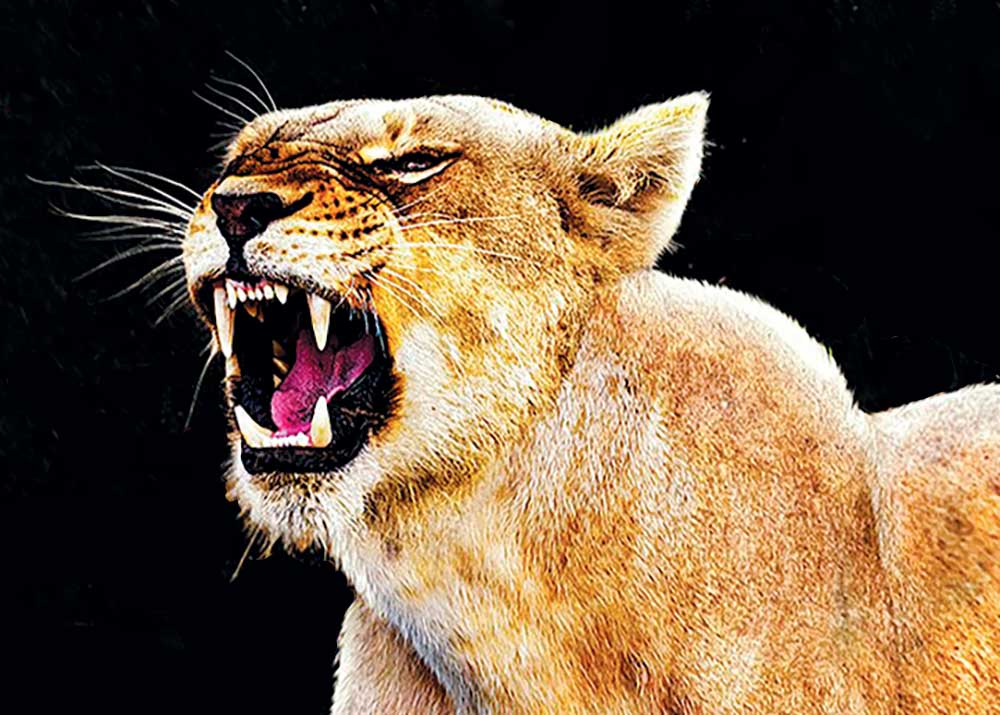Females rule in National Geographic’s fierce new nature docuseries Queens
When award-winning documentary producer Vanessa Berlowitz pitched a standalone doc about matriarchs in the animal kingdom to National Geographic, even she was unsure about the originality of her own idea. “The amazing senior exec there, who also happens to be a female, said, ‘This is a really good idea. Why don’t we do this as a whole series?’ I remember saying to her, ‘I’m sure that’s been done.’ I mean, female leadership in the natural world — it’s such an obvious thing,” recalls Berlowitz. “We quickly realized there’d never been a series that had featured this.”
Queens, a new seven-part documentary series, brings the natural world into focus through a female lens. This not only means revealing insights into how the females of such species as lions, hyenas and elephants achieve power within their herd using cooperation and intelligence over physical strength, it also meant placing women behind the lens capturing nature’s matriarchs. The result is footage that will surprise viewers, especially those who think of females as purely nurturing. “The hyenas will blow viewers away. The testosterone in a hyena makes them so extraordinary and empowering. Nobody’s going to have sex with a hyena unless she wants you to,” says cinematographer Sophie Darlington. Adds Berlowitz, “There’s different ways of being a leader. Don’t typecast women into just having soft skills.”

The series is narrated by Angela Bassett, a choice that seemed as obvious to the creators as it would be for the viewer. “She’s played the queen, she’s dignified, she’s got huge life experience. She is a great actress,” lists Berlowitz. “Equally, there weren’t a lot of people that had the gravitas that she has, that would also be famous enough.” The producers hoped to land Bassett but had to wait until they had a rough cut to approach the actress. Thankfully, Bassett deeply valued the message of the show. “She loved the ethos behind the series, of training up underrepresented women and diverse women, which she does with her production company,” says Berlowitz. “We got the yes, and from that moment, she became much more than a talent for hire. She co-produced it with us.”
What Berlowitz used as a selling point for Bassett is what makes the blue-chip documentary series so unique. The producer realized early on that leaning solely on renowned cinematographers like Darlington and Justine Evans would not be enough — excuse the term — manpower to build an entire series. A plan quickly formed to make Queens more than just aspirational. “We realized we needed to mentor and train women into those positions,” says Berlowitz. “We realized that this was a moment in time when we could hopefully change the face of the industry and fledge a new generation of female filmmakers.”
Kenya-born and South African-raised producer/director Faith Musembi came to the team through the South African NGO, NEWF (Nature Environment Wildlife Filmmaking). “We knew [hiring local producers] was the right thing to do and we wanted to do it. We didn’t realize it was going to affect the show as much as it did. The actual storytelling changed because Faith talked in Swahili to other Black Kenyan women, who were the elephant researchers, and it just opened up the access and the stories,” says Berlowitz. As the first woman to produce a blue-chip natural history show, Musembi was adamant that her opportunity to be a mentee not be purely performative. “It was really rigorous,” she says. “We didn’t have a structure like, ‘We’re going to teach you this and this.’ It was literally conversations in the field, together. I was getting paid to do the job, and learning from Sophie that I needed to step up [and own my talent], because at the end of the day, it’s my episode.”
Another mentee on the show was Alaska-based Erin Rainney, who worked as a cinematographer on Queens. For her, the dichotomy of rising in a male-dominated field has been present throughout her career. “If you’re not seeing yourself in the job that you want to do, then you don’t have the confidence to pursue it,” she says. “And you’re often seen by people as a risk because you don’t come off confident.” Berlowitz, along with Darlington and Evans, knew that Rainey’s ascent was truly just a matter of opportunity. “Erin, who is a huge talent, we thought, let’s pair her with Sophie and Justine and get her trained,” she says. The return on investment, from a professional standpoint, can already be felt. “I think it’s already lit a fire,” says Rainey, pointing to episode seven, which chronicles the women behind the scenes of the documentary series. “We have an episode where little girls and little boys will see people that they’ve never seen on screen before. And there’ll be little girls that go, ‘That looks like me. I can do that.’ This is only the start.”
Queens airs Saturday, March 23 on Nat Geo Wild

